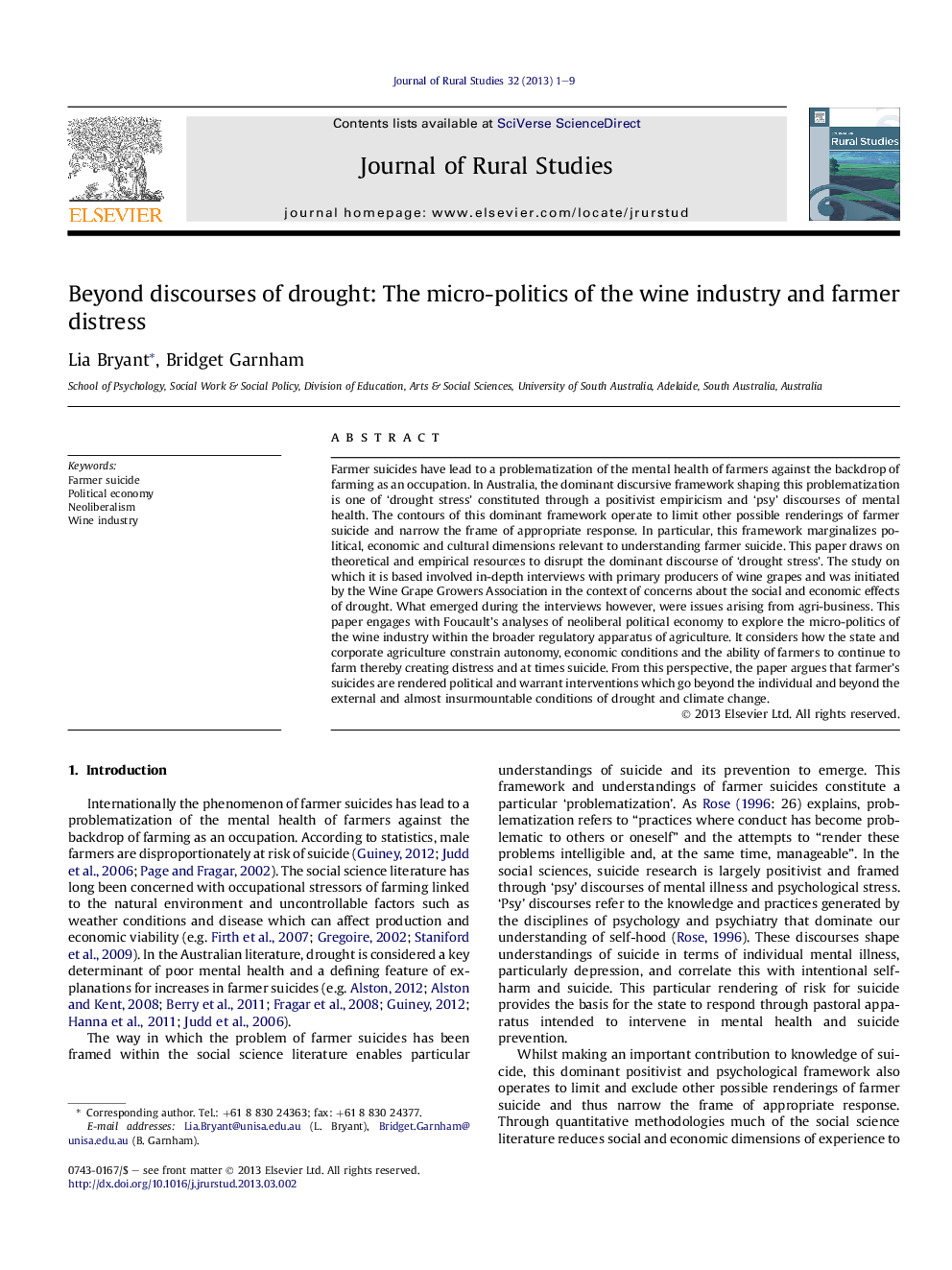| Article ID | Journal | Published Year | Pages | File Type |
|---|---|---|---|---|
| 6545881 | Journal of Rural Studies | 2013 | 9 Pages |
Abstract
Farmer suicides have lead to a problematization of the mental health of farmers against the backdrop of farming as an occupation. In Australia, the dominant discursive framework shaping this problematization is one of 'drought stress' constituted through a positivist empiricism and 'psy' discourses of mental health. The contours of this dominant framework operate to limit other possible renderings of farmer suicide and narrow the frame of appropriate response. In particular, this framework marginalizes political, economic and cultural dimensions relevant to understanding farmer suicide. This paper draws on theoretical and empirical resources to disrupt the dominant discourse of 'drought stress'. The study on which it is based involved in-depth interviews with primary producers of wine grapes and was initiated by the Wine Grape Growers Association in the context of concerns about the social and economic effects of drought. What emerged during the interviews however, were issues arising from agri-business. This paper engages with Foucault's analyses of neoliberal political economy to explore the micro-politics of the wine industry within the broader regulatory apparatus of agriculture. It considers how the state and corporate agriculture constrain autonomy, economic conditions and the ability of farmers to continue to farm thereby creating distress and at times suicide. From this perspective, the paper argues that farmer's suicides are rendered political and warrant interventions which go beyond the individual and beyond the external and almost insurmountable conditions of drought and climate change.
Related Topics
Life Sciences
Agricultural and Biological Sciences
Forestry
Authors
Lia Bryant, Bridget Garnham,
